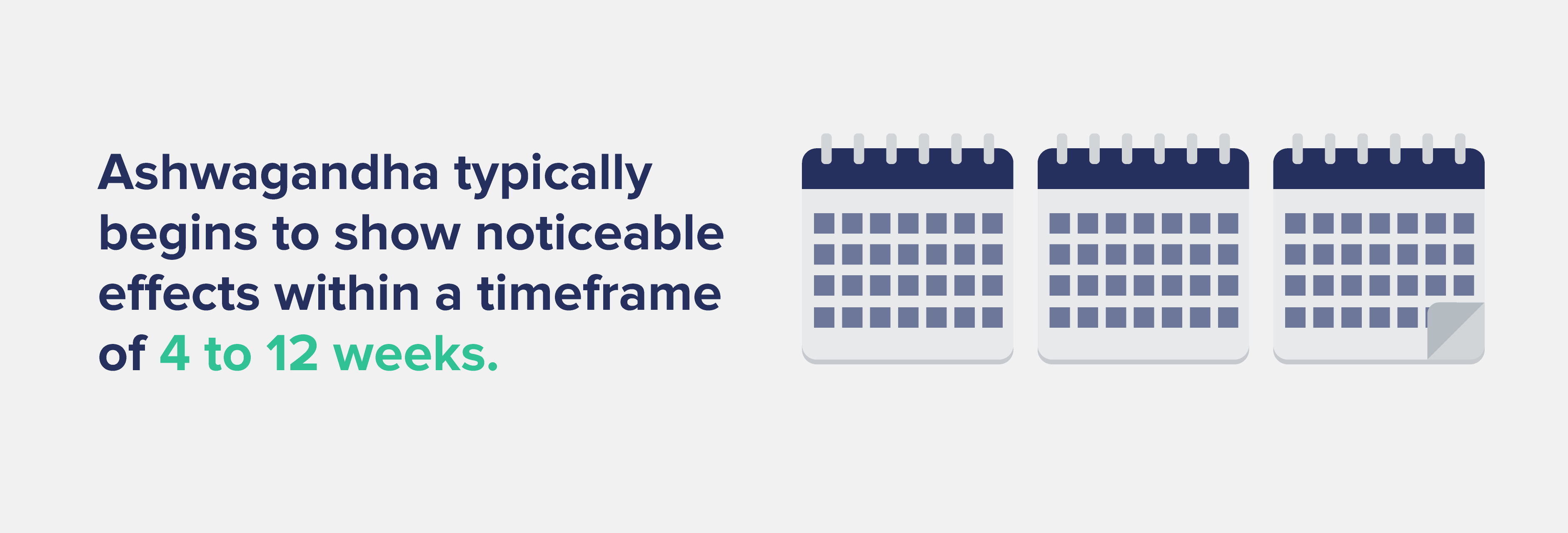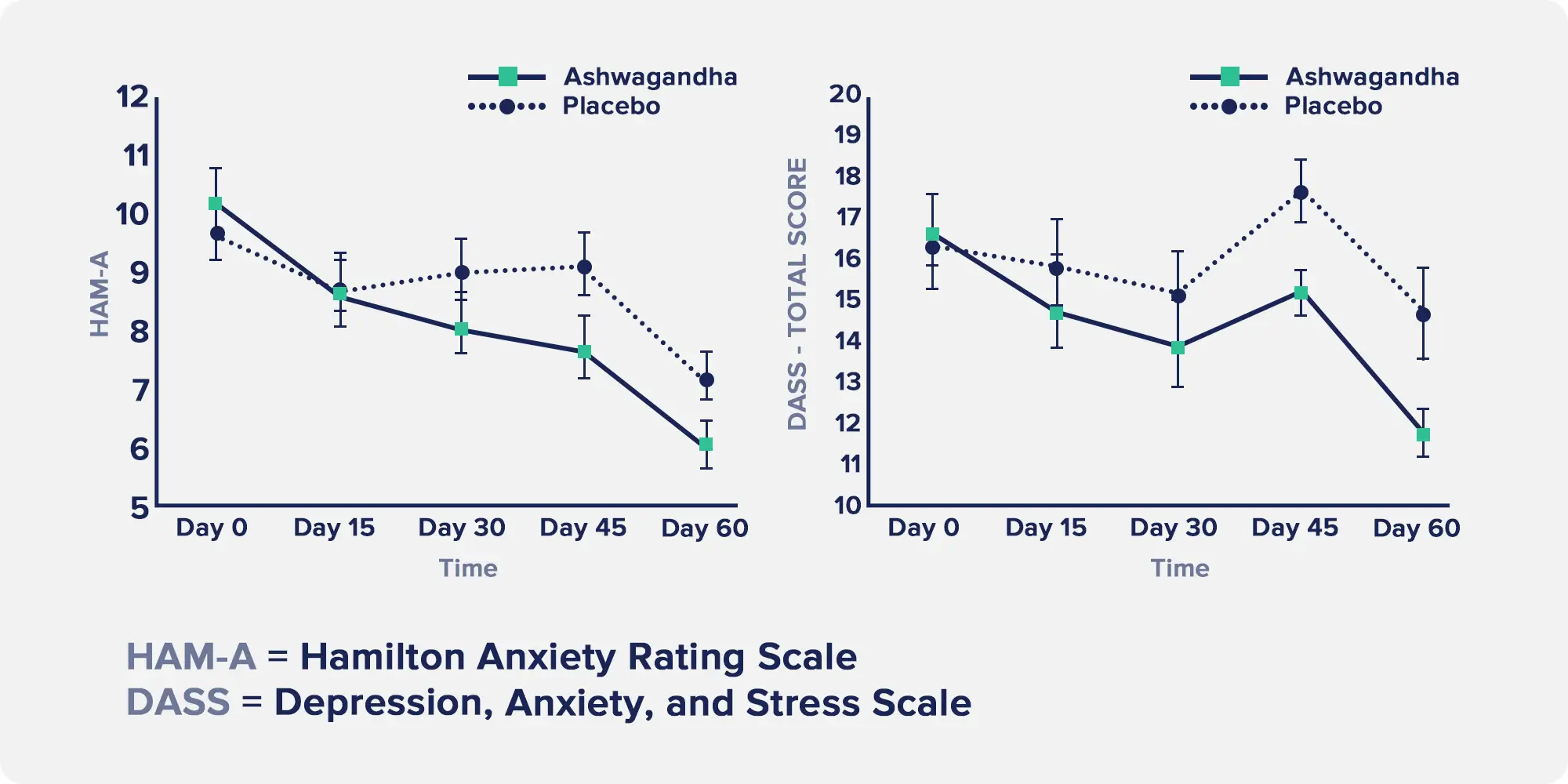Talk to a Registered Dietitian and use INSIDER20 for 20% off!
Talk to a real Dietitian for only $99: Schedule Now
This post contains links through which we may earn a small commission should you make a purchase from a brand. This in no way affects our ability to objectively critique the products and brands we review.
Evidence Based Research To fulfill our commitment to bringing our audience accurate and insightful content, our expert writers and medical reviewers rely on carefully curated research.
Read Our Editorial Policy
Recent years have seen a surge in the use of ashwagandha for stress, anxiety, sleep, and more—but it’s actually been used in traditional healing modalities for thousands of years.
Before the days of peer-reviewed research and randomized controlled trials, practitioners of Ayurveda—a holistic healing practice that originated in India—intuitively knew the benefits of this ancient medicinal herb.
But while we now know that ashwagandha can be beneficial, many people wonder how long it takes to work. Will it be hours? Days? Weeks?
If you’re in a TL;DR mood, the answer is that it can take anywhere from 4 to 12 weeks to see a noticeable change in physical and mental health outcomes after taking ashwagandha.
However, many people anecdotally report feeling less stressed and anxious with better sleep quality immediately or within days—so it’s possible you could be one of the lucky ones.
In this article, we’ll delve deeper into how quickly ashwagandha works for various scenarios like anxiety and sleep, as well as detail the top health benefits of this adaptogenic plant.
Some research has shown that ashwagandha has acute effects—meaning it works almost immediately.
For example, a study of 13 people found that taking 400mg of ashwagandha root extract significantly improved markers of memory, attention span, and executive functioning within six hours. However, this very small study is not enough to say that it works within hours for everybody.
The other physical and mental effects of ashwagandha—especially muscle strength, sexual function, and reduced diabetes risk—will take longer.
Most studies find that you need to take an ashwagandha supplement consistently for four to 12 weeks to see results.

That said, many people report feeling calmer, less stressed, less anxious, and sleep better relatively quickly after taking ashwagandha—either that same day or within a few days.
Therefore, ashwagandha supplementation can be highly personal and individualized, and taking it consistently and noticing any changes to your physical and mental health can help you determine if it’s working for you.
Most studies looking at ashwagandha for stress and anxiety use periods of 60 to 90 days to research its effects.
However, one small study from 2022 was only 30 days—and it reported beneficial results.
In this research, 60 healthy adults with perceived stress took 225mg or 400mg of ashwagandha or a placebo for a month. They found that both doses of ashwagandha led to significant reductions in cortisol levels—our primary stress hormone that is elevated in cases of chronic stress—compared to the placebo group. Other studies have found that taking 240mg of ashwagandha for 60 days is sufficient to lower anxiety symptoms significantly.

How long it takes ashwagandha to work for you may depend on your overall stress and anxiety symptoms, the dosage, and potentially other factors like genetics and lifestyle.
Studies on ashwagandha and sleep have shown that it takes a minimum of six weeks to see substantial improvements.
In this meta-analysis of five clinical trials and 1764 people, all five reported a significant improvement in overall sleep beginning at eight weeks or less.
However, as these studies don’t measure the outcomes every day (or even every week), it’s definitely possible that benefits are noticed sooner than eight weeks.
Like with stress, some people may see benefits more quickly, and others may take longer.
Ashwagandha (also known as Withania somnifera or Indian ginseng) is an adaptogenic plant in the nightshade family that is native to India and commonly used in Ayurvedic practices.
Whether your body is under or over-stressed, adaptogens like ashwagandha help your central nervous system to adapt to your specific needs at that time.
Ashwagandha is also rich in antioxidants and bioactive compounds that reduce oxidative stress, potentially contributing to several of its health benefits.
You probably won’t know right away if ashwagandha is working, as it works best when taken regularly over a period of months. However, many people report feeling calmer or less anxious immediately after taking it. You can keep a journal to note any changes in symptoms, including your physical and mental state. This can help you determine if ashwagandha is working for you.
Everyone’s body reacts differently, but taking ashwagandha supplements may make you feel more relaxed and calmer. It may relieve stress and anxiety levels and improve sleep quality. Over time, ashwagandha may also lead to significant improvements in sexual function, muscle strength, and cognitive function.
Most people do not feel the effects of ashwagandha right away. That said, some people anecdotally report that taking an ashwagandha supplement makes them feel calmer, less stressed, and less anxious immediately. You may also notice that your sleep quality improves within days to weeks.
Ashwagandha does not have significant side effects, but some people report an upset stomach after taking it. You may also feel slightly drowsy when taking it (which is the intended effect for some).
Some groups of people should not take ashwagandha or should ask their healthcare provider first, including:
• Pregnant or lactating women
• People with a nightshade allergy
• People taking certain medications, including thyroid hormone medications and those for high blood pressure or diabetes, should consult their doctor.
• Some people with autoimmune diseases may need to avoid ashwagandha, especially at higher doses, because of its immune-boosting properties.
Recommendations for the timing and amount of ashwagandha to take can vary individually. The studies mentioned here used ashwagandha doses ranging from 250 to 800mg per day. Research suggests that most of the benefits of ashwagandha are seen at doses of at least 250 to 500mg per day. Consuming more than 2,000mg per day is generally not recommended, so an ideal dosage may lie in the 250 to 800mg range. You could start at the lower dose and increase from there if needed.